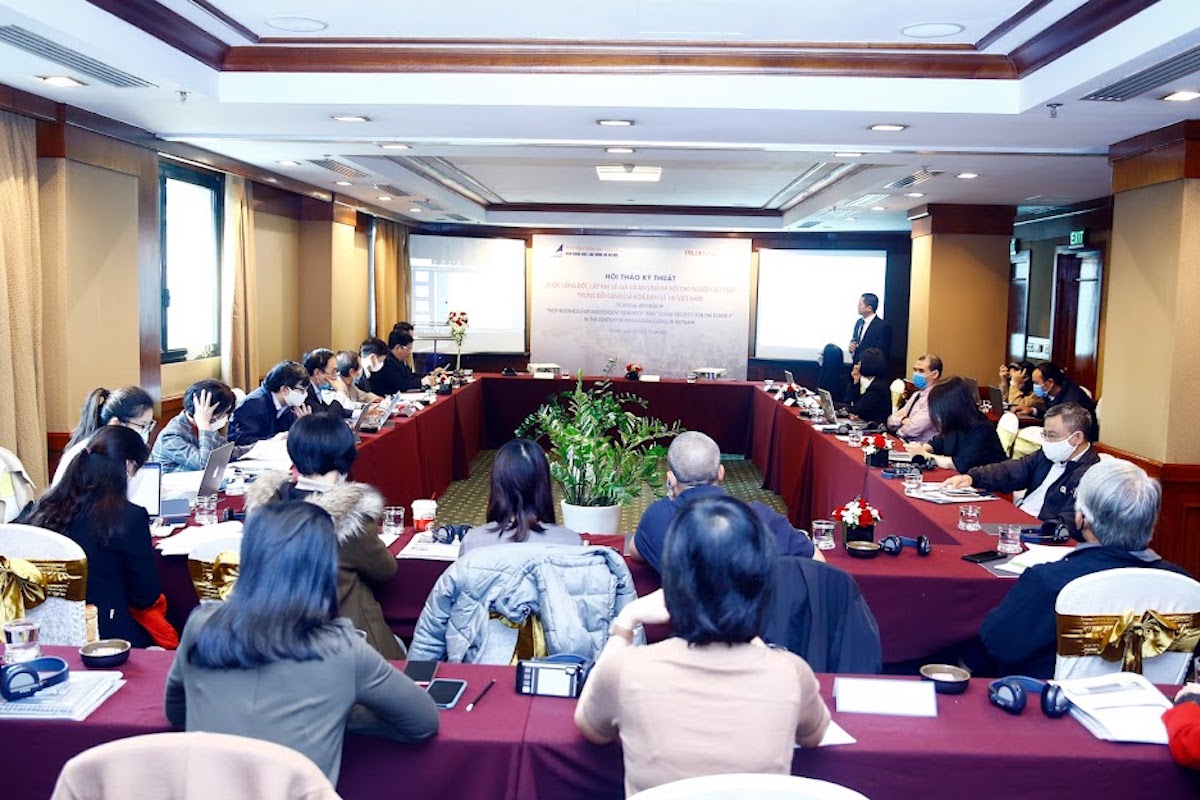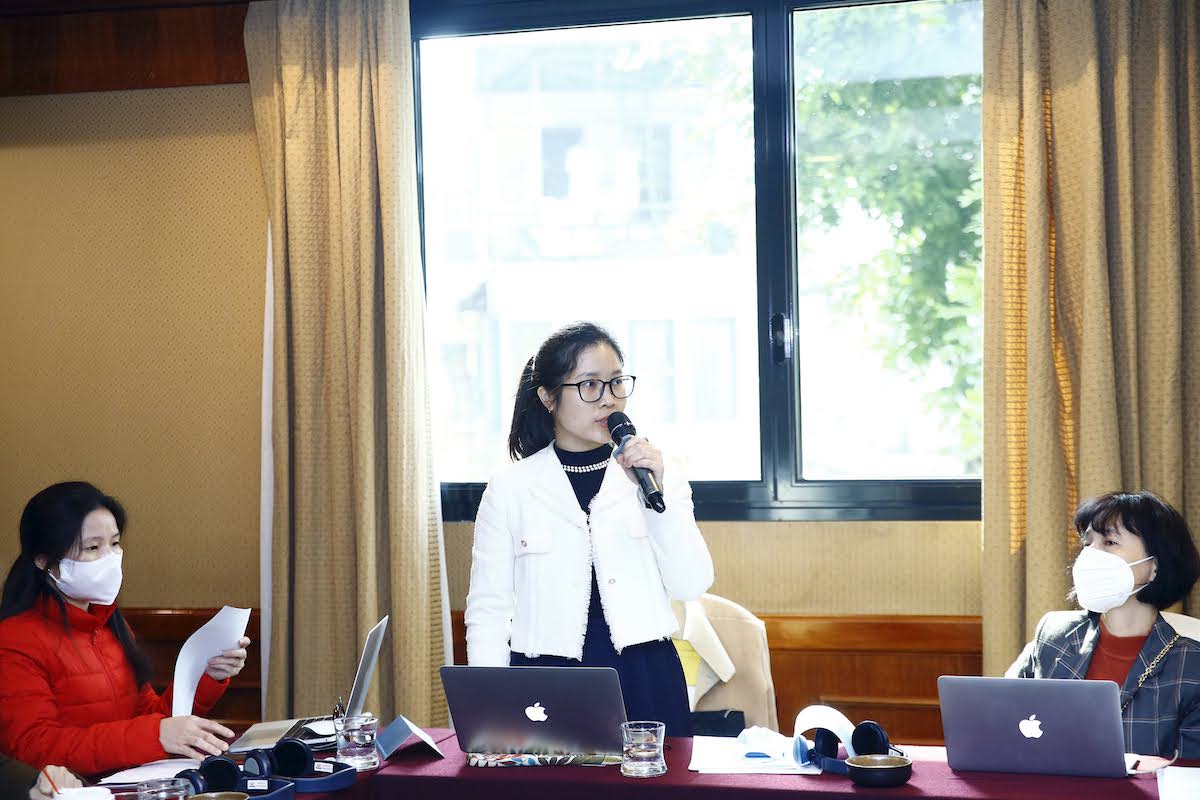Only 28.4 percent of respondents plan to live independently in old age, according to a national study on “Preparedness for Independent Seniority” by the Institute of Social and Medical Studies.
The Institute of Labor Science and Social Affairs (ILSSA) and Prudential Vietnam on Dec. 14 held a technical workshop to announce initial findings and consult with experts on the national study of “Preparedness for Independent Seniority” and “Ensuring Social Security for the Elderly”, concerning the ageing population in Vietnam. These studies were conducted by ILSSA in collaboration with the Institute of Social and Medical Studies (ISMS), with support from Prudential.
The survey involved 2,019 people aged 30 to 44, residing in six key cities and provinces that represent national economic regions from September to October 2021. The study framework was based on Active Ageing Index, assessing indicators in the four main areas of finances; engagement with family and society; preparedness for physical and mental health; and assessment and expectation on retired and senior life.
The survey revealed a large percentage of respondents seek to live independently in old age, however, the percentage of respondents planning to achieve this remains low, at only 28.4 percent. Only 17.3 percent of respondents are prepared for retirement. In order to achieve the financial expectations of old age, about 76.14 percent are prepared.
“The preparedness for old age is not high, particularly financial preparedness,” said Associate Professor, PhD Giang Thanh Long, on behalf of the working group.
 |
|
Associate Professor, PhD Giang Thanh Long presents the study on “Preparedness for Independent Seniority”. Photo by Prudential Vietnam |
For reasons why respondents have no plan for old age, the survey found some of the most common include “no financial stability” (33.82 percent), “a focus on current life and work” (33.64 percent), “no thought about old age” (32.77 percent), and “issues and responsibilities toward family care” (31.34 percent).
The percentage of respondents reporting they “want to focus on work” increases dramatically with age.
Speaking at the conference, Dr. Bui Ton Hien, director of ILSSA, said population ageing is presenting many challenges for Vietnam. The ageing rate is high, while the country’s economic resources are limited and its social security system still in its early stages.
He cited statistics showing only 33.2 percent of the workforce participate in social insurance, 45.5 percent of senior residents receive a monthly retirement salary, while social insurance or social benefits, social support mechanisms and policies, as well as social care for the elderly remain undeveloped.
“This could lead to the burden of “getting old before getting rich” – if we don’t have measures to timely and effectively tackle population ageing. This requires a comprehensive policy framework that applies to all population groups to prepare for an aged society in the near future, not just resolving issues for the elderly,” Hien said.
Assessment results will enable Prudential Vietnam to, in partnership with the Vietnamese government, actively respond to the ageing issue.
 |
|
MSc. Nguyen Hai Ninh presents findings on the study “Ensuring Social Security for the Elderly in the Context of Population Ageing in Vietnam”. Photo by Prudential Vietnam |
Phuong Tien Minh, CEO of Prudential Vietnam, shared: “If well-prepared, population ageing will be an opportunity, rather than a challenge, for society. By collaborating with experts in such extensive studies at national representative levels, Prudential wants to work together with regulators to resolve issues related to population ageing, so that ageing will not become a burden. Prudential wants to establish the foundation to form a community that is informed and enable them to take action to get the most out of life and enjoy independent seniority. This is one of our long-term projects to demonstrate our corporate responsibility, underscoring our commitment to supporting a healthier and wealthier Vietnam.”
Population ageing is a rising issue in many countries. In Vietnam particularly, the population ageing rate is high. Demographic projections indicate Vietnam would have transitioned from an “ageing” population to an “aged” population in only 26 years (between 2011 and 2036). At this rate, it is estimated there would be 29.2 million people aged over 60 by 2050, of which 21.7 million are aged over 65.
Meanwhile, current public awareness on preparedness for senior independent living in Vietnam remains low while implementation of social security policies for the elderly faces many challenges.
- Reduce Hair Loss with PURA D’OR Gold Label Shampoo
- Castor Oil Has Made a “Huge” Difference With Hair and Brow Growth
- Excessive hair loss in men: Signs of illness that cannot be subjective
- Dịch Vụ SEO Website ở Los Angeles, CA: đưa trang web doanh nghiệp bạn lên top Google
- Nails Salon Sierra Madre
 VnExpress News The News Gateway of Vietnam
VnExpress News The News Gateway of Vietnam





